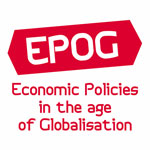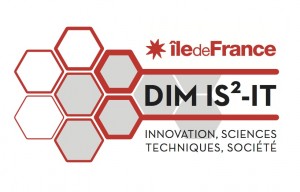Your article focuses on electronic machines capable of producing objects. What is it ?
The key principle of 3D printers is to guide the movement of a machinery tool with software. 3D printers work like regular printers, but in three dimensions: layer by layer, a nozzle moves on three axes and extrudes a material, most often a synthetic resin, shaping an object specified in a digital file, until the desired volume of resin has been deposed. From doorknobs to parts for bikes, the kind of objects that can be produced are multiplying.
What are the actors of these innovations? What is their vision of society?
Initially, a 3D printer for home use was developed by a community of hobbyists, and the project went by the name « rep-rap ». Since 2009, a rapidly expanding consumer market in 3D printers have attracted a number of companies, resulting in an increased number of conflicts within the community. For the hobbyists, or at least for the more idealistic among them, the goal with Rep-rap was to disrupt the market in consumer goods by allowing everyone to manufacture their own objects at home, rather than having to buy the products in a store.
You talk about illusory emancipation. Can you tell us a bit more?
In fact, the title was decided by the editor. But it is true that we must be aware of the hyperbole surrounding this technology nowadays. What interests me the most, however, is not to debunk the myths, but trying to understand why the notion that emancipation can be achieved through technology is plausible to so many people. As is often the case, the hobbyists who pioneered the technology have high hopes, eccentric but sincere, about the political consequences that will follow from the spread of 3D printers. Subsequently, both their technology and the hopes they invested in this technology have been appropriated by start-up firms and venture capitalists. However, the kind of social change that a technology might contribute to will be radically different depending on whether the machine has been designed by a network of hobbyists or by a company. The emancipatory hopes invested in 3D printing now seems like a distant dream because the idealists and their technology have quickly been marginalized by firms and commercial alternatives.
Johan Söderberg was post-doc at IFRIS and LATTS research unit. His research focuses on a comparison between two cases of regulation of ‘irresponsible’ innovation: open source and legal highs. In March 2011, Johan has defended his thesis in the Department of sociology of Gothenburg, Sweden, on the topic of « Free Software to Open Hardware – Critical Theory on the Frontiers of Hacking »
« Imprimantes 3D, dernière solution magique. Illusoire émancipation par la technologie », Le Monde diplomatique, January 2013, n° 706, p. 3


